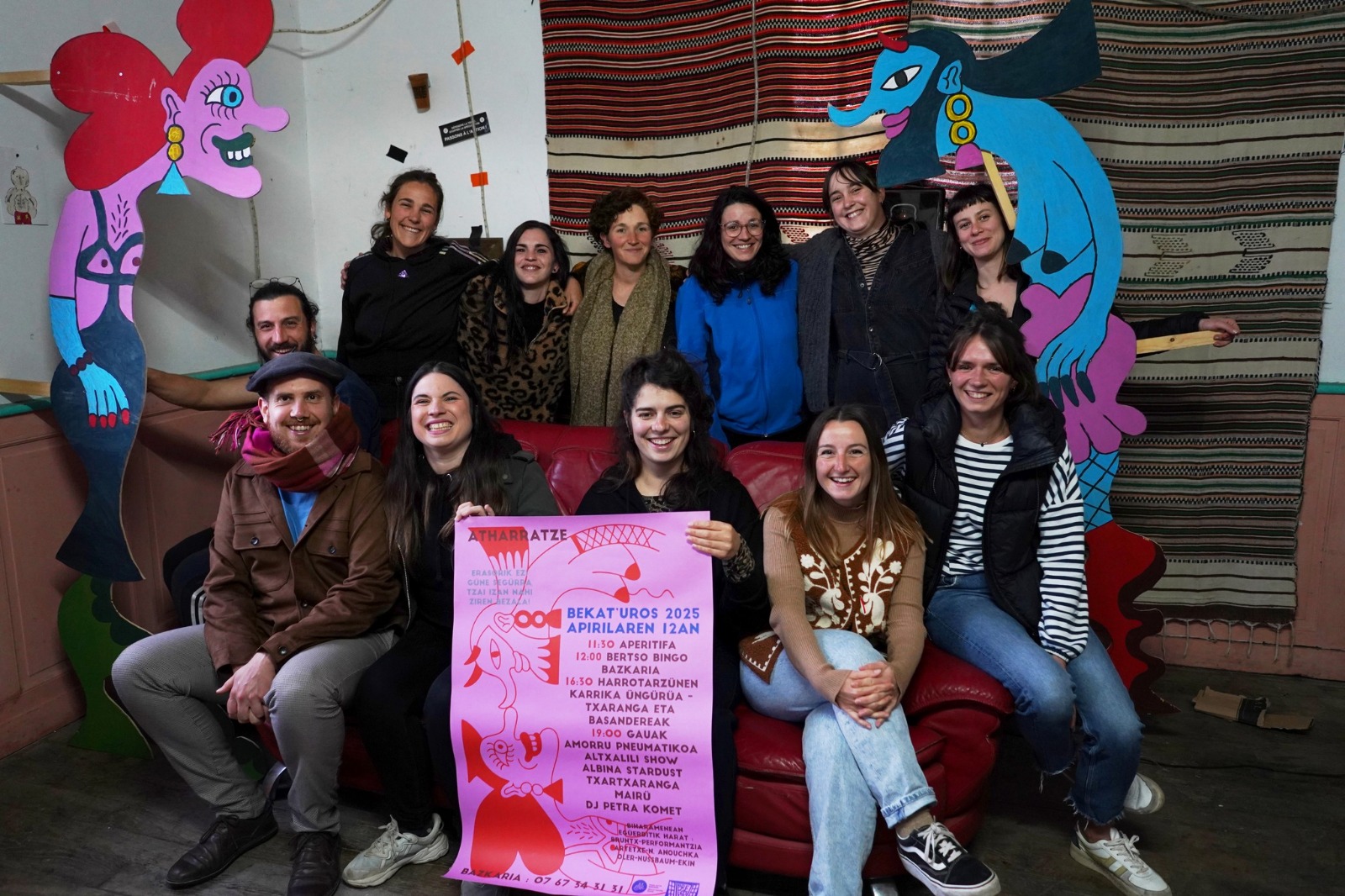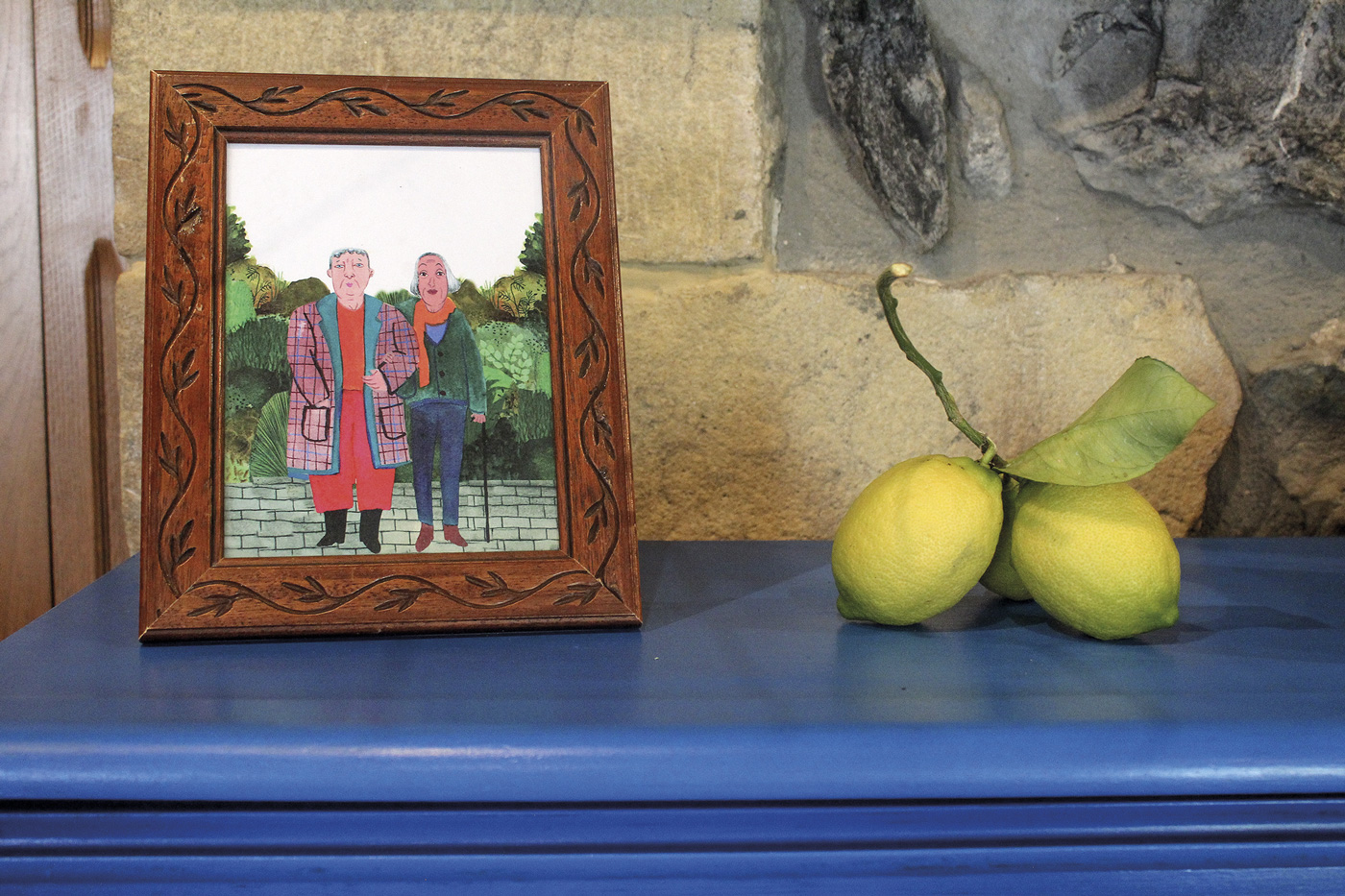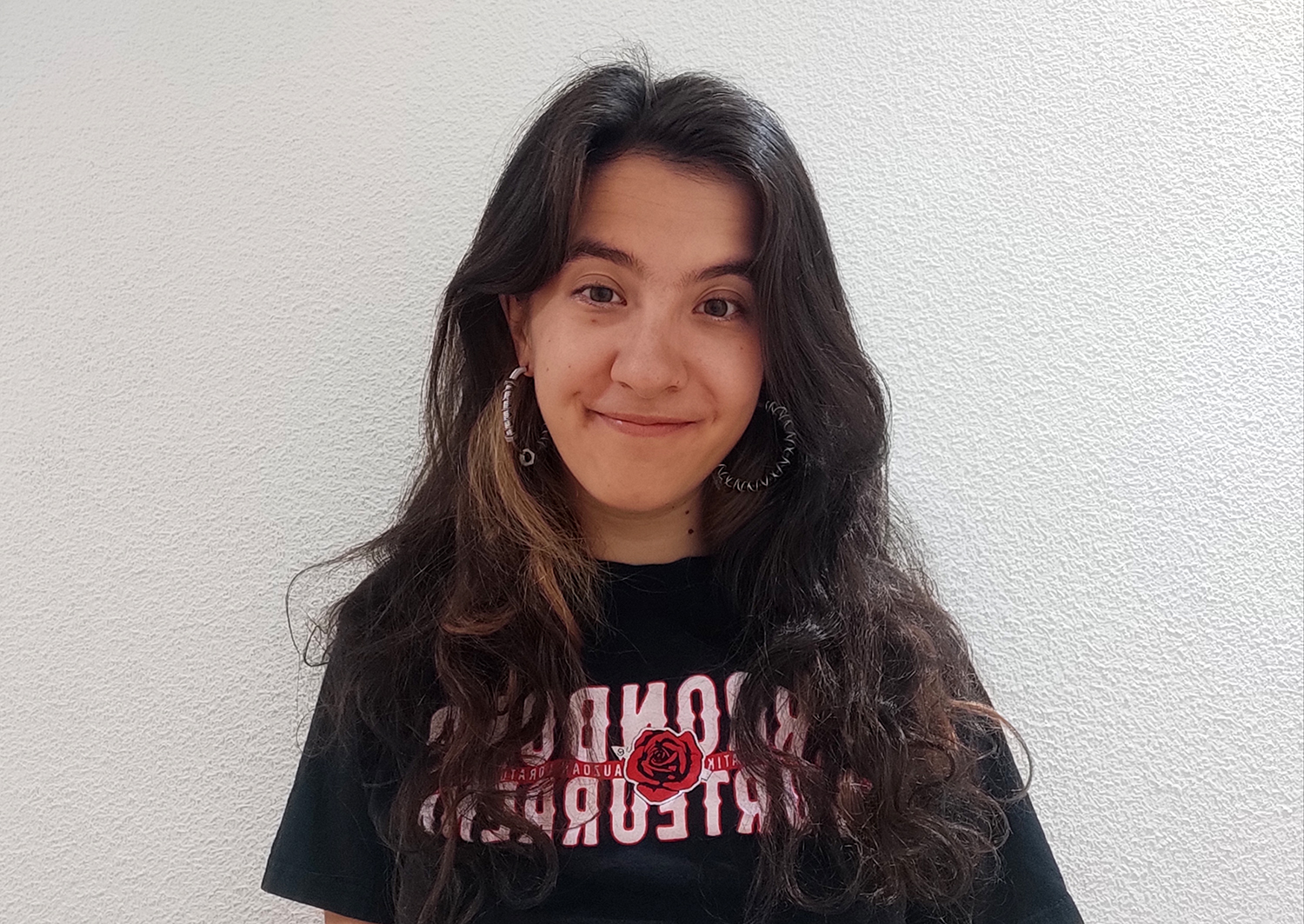Strengthening alliances: from gay liberation to sexual liberation
- In 1977, following the meeting held in Durango, EHGAM was established. Behind the acronym, the words Euskal Herriko Gay Askapen Mugimendua and, behind the initiative, many people who for years have fought for sexual liberation, and many others, who have been protagonists or anonymous entrepreneurs. Among other things, this “gay” of EHGAM still did not have the meaning it has today; it did not refer only to a specific type of homosexual man. The intention was to fight for all those who suffered from the consequences of the regulated view of sexuality and gender. It's been 45 years and a lot of incidents. "Gay" is no longer an umbrella that can enclose all of us, and LGBT+ (and Ehgam's) struggles have diversified, both for better and for worse.

This article has been written for Pikara Magazine by the Ehgam Berramestuz initiative and the Basque version has been sent to ARGIA, for publication in the Basque Country.
About a year ago we received the call from the members of Ehgam de Bizkaia, asking for help to strengthen the movement and guarantee the generational relay. We gathered together a small group of people, the majority known to each other, who were found in different struggles and initiatives. On the first day we talked about the meaning of Ehgam for us and most of us had a strong connection with the association, although we were never part of it. For many of us, Ehgam’s posters, stickers, campaigns, camping and press releases were the first positive reference we heard of being LGBT+, which helped us dominate our everyday environments: we filled with nervousness the “gay wrestling” t-shirt, the “Keep the norm” sticker glued to the village streetlights or the use of the triptyl in sex between boys and girls. The people who met in Durango in 1977 had to look for their referents elsewhere. For those of us who met at Hernani in 2020, Ehgam was one of our largest referents. In that sense, we see this association as a small treasure, a light, a sound, a mark on the earth that, for many of us, marks the path of many struggles.
But it is inevitable that in the previous paragraph we wrote for “many of us” and not for “all.” Because the desire to be a tool for all the subjects and struggles that are grouped under the LGBT+ acronym of an association like Ehgam doesn't mean we've done it. And to date, the reactivation of Ehgam and the continuity of its activity necessarily imply the location of the association in the current reality, the creation of the conditions that we need to continue to reflect and critically move on the path traveled. Without falling into endless processes of reflection, we want to unite and think through action, but we cannot go ahead without further action.
Insufficient changes
In all these years, the struggles for sexual liberation have changed, just as the societies around it have changed. It would be very long to list all the changes, but it is necessary to look at a few aspects. In recent decades, several legal and administrative laws and regulations that have had a significant impact on the lives of LGBT+ people have been passed or are in the process of being passed. Everyone will have their views on them, but it cannot be made clear that homosexuality has had a huge impact on our lives, such as the elimination of the penal code, same-sex marriage, changes in adoption regulations, laws to change generic identity, or changes in health guidelines. And of course, and we can already say clearly, these changes have not solved all of our problems. In many cases, they have also created new problems or been displaced to affected people within the LGBT+ community (e.g. migrant working classes).
But these changes have not been profound enough, as they have not touched or questioned the fundamentals of the system itself. They want us to integrate into the present liberal capitalist model, leaving that model as it was or, in many cases, reinforcing it. It's a good example of family. Thanks to the many methods of marriage, adoption and access to children, LGBT+ people have the possibility to create families recognised by the state and society. We have broken the holy institution of marriage and the family, we have created a gap and we have got into it and, even if it sounds like a lie, those institutions have emerged strengthened from that process. Despite the many complaints and raising of the voice of conservatives and reactionaries, the family model that the current economic system needs continues to play its role: to limit the reproductive work of capitalism to the private space and not to pay for it with money, to be a unit of consumption and to transmit the culture of consumption, facilitating and channeling the management of the State. For example, the crises that occurred in 2008 and 2020 in which the first outbreaks occurred have been solved in families, shifting the consequences of rescuing large companies and the corrupt system into private space. It is mainly the families that have had to pay for these broken dishes by adapting their economies to the continuing precariousness, among which are also the “normal” LGBT+ families (composed of two parents and children). Families, extended families, who survive blood ties, who are with their friends, have also had a lot of work, but have not received the approval of the State.
The speeches of tolerance and respect have clear limits. The situation of trans* women in employment can be said to be “discriminatory”, but it is not possible to change employers’ recruitment models
In recent decades, we have seen an increase in the cultural viewpoints in our movements and, above all, in the culture of consumption. The looks that suggest that LGBT+ issues are just a matter of acceptance, that when there is respect and affection everything can be fixed. Again, although we know that all of this is important, we know that it is not enough.
LGBT+ accounts are more related to other elements that organize society than we think. They are a battlefield for reactionary and fascist policies, yes, but also for the economy, either through the family model or consumerism (yes, friends, which in recent years we have also become a market niche). So when the economic situation worsens, LGBT+phobic aggressions multiply because the economic situation of society and its sexual ideology are interlinked. And so the speeches of tolerance and respect have also found clear limits when they have wanted to touch other axes of the system. Today it is possible to say that the situation of trans* women in employment is “discriminatory”, but it is not possible to change the hiring models of entrepreneurs because the autonomy of private enterprise is intangible. It is possible to marry people of the same sex, but do not worry if the law on aliens is at stake. A lot of white heterosexuals may produce series and films about an LGBT+ crew with the intention of creating social awareness and that, among other things, the unemployment of LGBT+ people in the audiovisual sector is higher than that of others.
x.jpg)
Social class, gender, rationalization
This ideal image of the LGBT+ community has fallen to us a long time ago. We cannot talk about “people living in the same situation” without taking into account the situations that live in each other of us. The situation of gay men is not that of trans*s women. Bisexuals are not lesbians and lesbians are not trans* nonbinary. In addition, we all have the basis of social class, gender and rationalization.
Given this diversity of situations, the movement has been able to find tools, for example, that people living in specific situations have created their own initiatives or groups. Of course, this also has its B side: our struggles are becoming more and more fragmented, we often have little ability to join forces and also the market takes good advantage of these opportunities so that the market niches we have mentioned before are becoming more and more specific. Consequently, despair prevails and despair is the greatest enemy of any struggle.
Ehgam must also assess this whole context and criticise what he has done in his career. Because for many years our movement has been declining, both in terms of the number of members and, above all, on their behalf. In short, we've become a gay men's movement. And if we want to start strengthening it, we can't stop doing it. We believe that it is worth that dream that Ehgam is an umbrella and an instrument for all. Because activism for sexual liberation makes more sense if we move forward together, recognizing the particularities of all and giving the necessary autonomy to the struggles. What is more, we believe that we cannot do the fight for sexual liberation separately from others, that is, that collaboration and networking with feminism, anti-capitalist struggles, anti-racists, Euskaltzales, ecologists and, in general, those who wager on new and fairer models of society are essential.
Our struggles are becoming more and more fragmented, we often have little capacity to join forces and also the market takes good advantage of these opportunities.
We know that this imposition is not easy, but it is more difficult to think that from the fragmentation and despair imposed on us by current capitalism, we will get nothing good. We want Ehgam to be a broad, tangled and transformative movement. And we are convinced that to do so, in addition to inviting people, we need to review and change the fighting practice and the culture of our organization.
Therefore, without forgetting what Ehgam has been, we believe it is time to rethink, rearm and restructure the partnership. Revive, question everything you need and put your gaze on the horizon to set our goals. Rearm, think about the issues to be discussed and acquire the necessary imaginative tools. Restructure ourselves, reflect on how we organize our forces and make compromises.
As a first step, we presented the KOSA reflection cycle a few days ago, with the objective of dealing with various problems through different round tables, debates and group dynamics. There are four or five initiatives, and we know that many problems, struggles and subjects are missing from the poster, but the initiative did not want to be in any way an objective, but a starting point, a pretext for joining us, thinking, debating and saying our own.
From now on, it is up to us all to reinvent the new Ehgam, as an instrument for sexual liberation, as a nexus of many shelters and networks for all.
See also:
Rearming the Sexual Revolution

The Leioa School of Education was full of students last Wednesday because Samantha Hudson was coming. She is a transgender Mallorcan artist, singer and influencer born in 1999. The star of the People Singing Encounters had an endless line to give selfies and autographs, and his... [+]
1984an ‘Bizitza Nola Badoan’ lehen poema liburua (Maiatz) argitaratu zuenetik hainbat poema-liburu, narrazio eta eleberri argitaratu ditu Itxaro Borda idazleak. 2024an argitaratu zuen azken lana, ‘Itzalen tektonika’ (SUSA), eta egunero zutabea idazten du... [+]






















